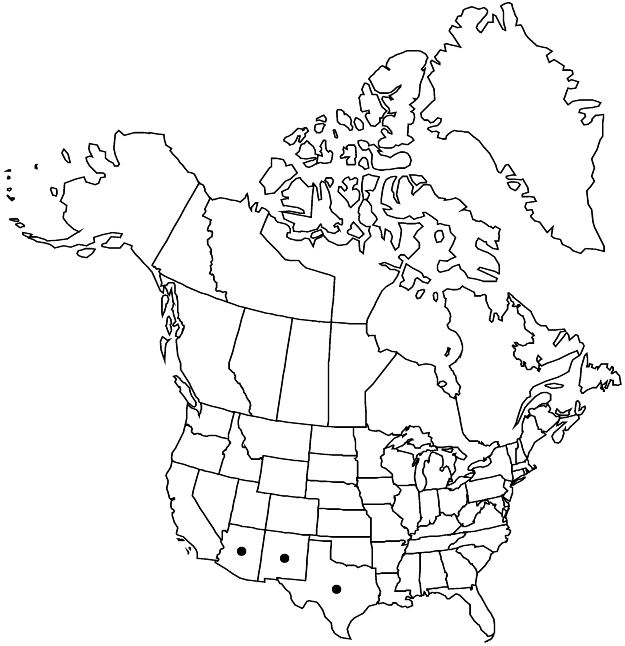Difference between revisions of "Sphaeralcea wrightii"
Smithsonian Contr. Knowl. 5(6): 21. 1853.
FNA>Volume Importer |
FNA>Volume Importer |
||
| Line 32: | Line 32: | ||
-->{{#Taxon: | -->{{#Taxon: | ||
name=Sphaeralcea wrightii | name=Sphaeralcea wrightii | ||
| − | |||
|authority=A. Gray | |authority=A. Gray | ||
|rank=species | |rank=species | ||
| Line 47: | Line 46: | ||
|publication year=1853 | |publication year=1853 | ||
|special status= | |special status= | ||
| − | |source xml=https://jpend@bitbucket.org/aafc-mbb/fna-data-curation.git/src/ | + | |source xml=https://jpend@bitbucket.org/aafc-mbb/fna-data-curation.git/src/f50eec43f223ca0e34566be0b046453a0960e173/coarse_grained_fna_xml/V6/V6_685.xml |
|subfamily=Malvaceae subfam. Malvoideae | |subfamily=Malvaceae subfam. Malvoideae | ||
|genus=Sphaeralcea | |genus=Sphaeralcea | ||
Revision as of 22:06, 16 December 2019
Plants perennial. Stems ascending to erect, gray-green, 2–5(–7.5) dm, canescent to tomentose. Leaf blades gray-green, widely ovate or triangular to orbiculate, all but proximalmost deeply pedately divided, (1–)2–4 cm, not rugose, base truncate to cordate, margins entire, surfaces stellate-pubescent. Inflorescences racemose or paniculate, narrow, open, few–many-flowered, tip not leafy; involucellar bractlets green to tan. Flowers: sepals 6–7 mm, not forming beak; petals lavender, red-orange, or pink, 10–13.5(–18) mm; anthers yellow or purple. Schizocarps hemispheric to truncate-conic; mericarps 12–15, 4–7 × 2.5–3 mm, chartaceous, nonreticulate dehiscent part 55–65% of height, with prominent ventral beak, tip acutish, cuspidate, indehiscent part not wider than dehiscent part, sides prominently reticulate. Seeds 2 per mericarp, black, pubescent. 2n = 20.
Phenology: Flowering spring.
Habitat: Dry rocky areas
Elevation: 1200 m
Distribution

Ariz., N.Mex., Tex., Mexico (Chihuahua).
Discussion
Selected References
None.